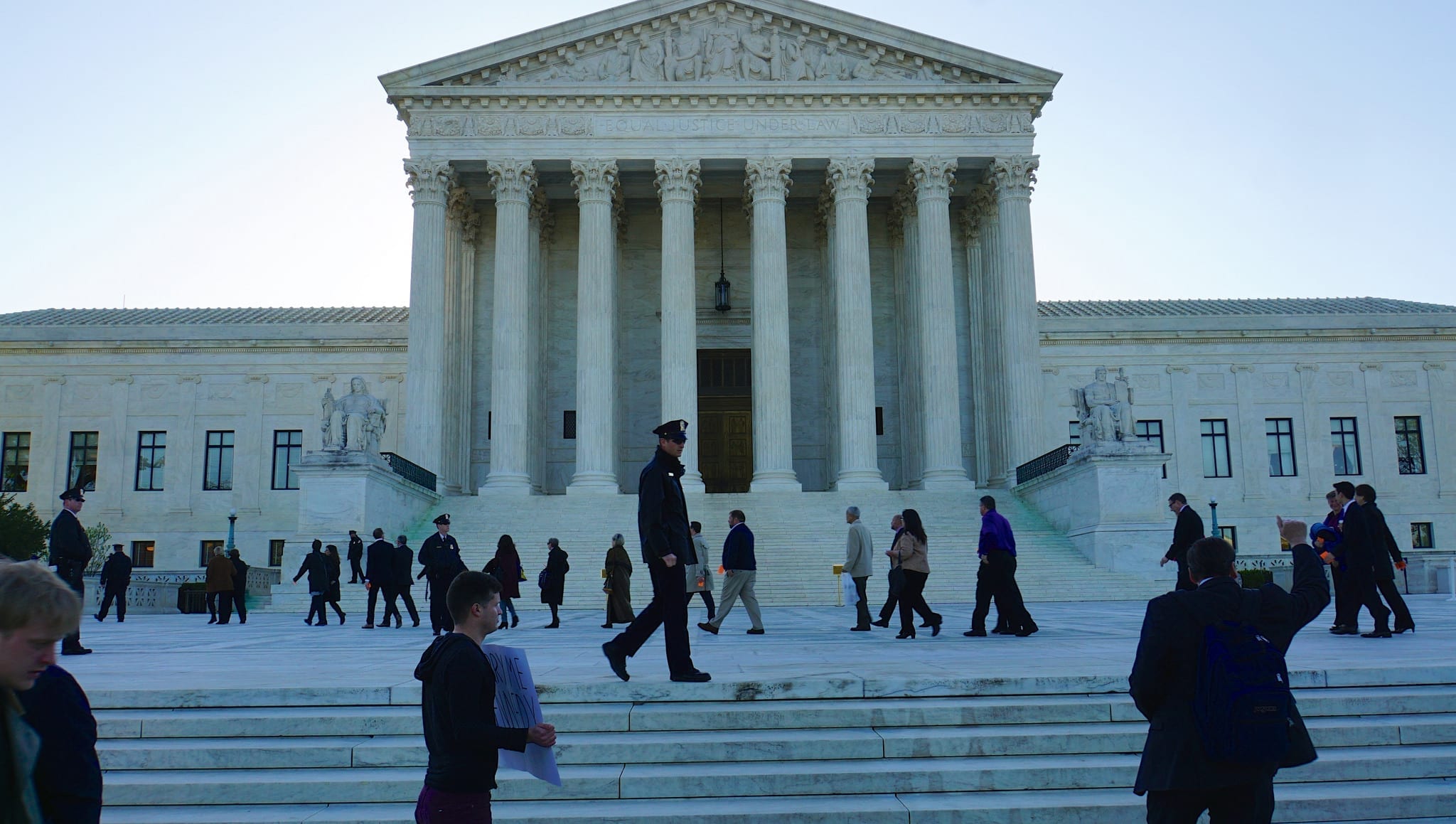The process of adjusting status in the United States is very complex, requiring the careful analysis and attention of an experienced and skilled immigration attorney.
Washington, D.C. – On June 7, 2021, the United States Supreme Court decided Sanchez v. Mayorkas, in which the Supreme Court held that a foreign national who entered the United States unlawfully is not eligible to become a lawful permanent resident under 8 U.S.C. § 1255 even if the foreign national has been granted Temporary Protected Status (TPS).
Though the United States Citizenship and Immigration Services (USCIS) cites that TPS is a temporary benefit that does not lead to lawful permanent residency or provide any other immigration status, it also cites that TPS does not prevent a foreign national from adjusting status based on an immigrant petition.
Such is disputed in the case of Jose Santos Sanchez and Sonia Gonzalez, a married couple from El Salvador who entered the United States unlawfully in 1998. When a 7.9 magnitude earthquake struck El Salvador in 2001, the Department of Homeland Security (DHS) designated the country for TPS and foreign nationals became eligible to apply. Mr. Jose Santos Sanchez and Ms. Sonia Gonzalez applied for TPS in 2001 on this basis and were approved. The couple has since remained in the United States for over twenty years by continuously extending their eligibility.
When Mr. Sanchez attempted to adjust status and apply for legal permanent residency under 8 U.S.C. § 1255, listing Ms. Gonzalez as his derivative spouse, both applications were denied by USCIS, citing that Mr. Sanchez was “statutorily ineligible” for adjustment of status because he had not been lawfully admitted into the United States.
Mr. Sanchez and Ms. Gonzalez challenged this decision in the United States District Court for the District of New Jersey, citing that Mr. Sanchez had been admitted into the United States when he was granted TPS. The United States District Court for the District of New Jersey agreed and held that the granting of TPS meets the requirements for obtaining legal permanent residency under 8 U.S.C. § 1255(a). The court reasoned that since Mr. Sanchez and Ms. Gonzalez were in lawful status with TPS, they were therefore considered to be legally inspected and admitted into the United States for purposes of 8 U.S.C. § 1255(a).

On appeal, the Court of Appeals for the Third Circuit reversed the District Court’s decision, asserting that Mr. Sanchez is ineligible to adjust status under 8 U.S.C. § 1255 because the granting of lawful status with TPS is not a legally inspected admission into the United States.
The Court of Appeals for the Third Circuit reasoned that the United States District Court for the District of New Jersey’s interpretation of 8 U.S.C. § 1254(a) and 8 U.S.C. § 1255 was inconsistent with the text, context, structure, and overall purpose intended by Congress for three (3) main reasons:
- The text of 8 U.S.C. § 1254(a) does not state that the granting of TPS is (or should be considered) an inspection and admission into the United States.
- The granting of TPS cannot be an admission because 8 U.S.C. § 1254(a) requires the foreign national to be present in the United States to be eligible and be approved for TPS.
- While the granting of TPS does provide lawful status and protects foreign nationals from being removed temporarily, it does not constitute an admission into the United States.
As a result, The Court of Appeals for the Third Circuit held that the granting of TPS under 8 U.S.C. § 1254a(f)(4) does not authorize eligible foreign nations to obtain for legal permanent residency under 8 U.S.C. § 1255. In its reasoning, the Court considered but was not persuaded by the previous decisions by The United States Court of Appeals for the Sixth Circuit in Flores v. USCIS and United States Court of Appeals for the Ninth Circuit in Ramirez v. Brown.
On January 8, 2021, the United States Supreme Court granted Mr. Sanchez and Ms. Gonzalez a writ of certiorari, meaning the Supreme Court would hear and review the case of Sanchez v. Mayorkas at its discretion. The Supreme Court began to hear and review oral argument on the matter on April 19, 2021. In its ruling on June 7, 2021, the Supreme Count cited plain language of §1255, particularly two provisions that define the “lawful entry” of a foreign national as being “inspected and admitted or paroled into the United States” under §1255(a) or having presence in the United States “pursuant to a lawful admission” under §1255(k)(1); see §1255(c)(2).1.
Despite being granted TPS, Mr. Sanchez was neither “inspected and admitted or paroled into the United States” or present in the United States “pursuant to a lawful admission.” Mr. Sanchez is therefore unable to become a lawful permanent resident under 8 U.S.C. § 1255.
The process of adjusting status in the United States is very complex, requiring the careful analysis and attention of an experienced and skilled immigration attorney. The Law Office of Eric M. Mark offers free, 10-minute consultations to those in need of legal assistance and we encourage you to give us call now to learn more about what we can do to defend you and help you build your life in the United States.


Join the conversation!